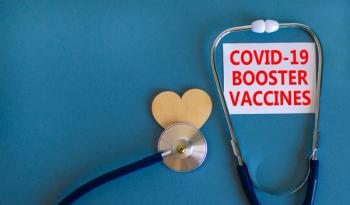
NAACP’s ‘COVID. KNOW MORE’ Initiative Continues to Stand as Black America’s Best Defense and Resource
Now in winter, another variant and infections again on the rise, evidence abounds that COVID-19 isn’t finished plaguing, and normalcy’s still a long way off.
This month, the nation marked a foreboding, record death toll: More than 5,230,000 deaths worldwide as a result of COVID-19, according to a news release.
As Americans begin to ponder once again the safety of gathering with friends, families and loved ones for the holidays, infections once more are on the rise in multiple states. Although the Delta and Lambda variants are showing signs of a steady decline, the new and highly transmissible Omicron variant is emerging across the Atlantic as a cause for concern, and has now arrived in the U.S.
Misinformation about the virus and the efficacy of the vaccines, coming from professional athletes and entertainment celebrities alike continues to be recklessly spread, and health professionals are issuing dire warnings about more spikes in cases looming this winter as people will likely choose to socialize indoors, with fewer following mask guidance in confined spaces.
For African Americans the potential threat of contracting COVID-19 is even greater. Though the majority of eligible Black adults have been fully vaccinated (62%) and the numbers of children now being vaccinated also continues a consistent rise, reliable, credible information is still the primary battleground, the release said. Deep in the trenches still fighting this fight is the NAACP, which through its ‘COVID.KNOW MORE’ national initiative has been tirelessly working to deliver resources, timely research and data specific to the Black community that can be found nowhere else.
“The specter of the COVID-19 pandemic has plagued our nation and the world for 20 long months now, but all of its devastating effects, whether health wise or economic, disproportionately impact our Black community,” states Derrick Johnson, NAACP president & CEO. “Trust the science, and trust the data. As we’ve worked hard to move African Americans toward a phase of recovery, our research shows that the concerns of experts are justified about the coming winter months.
“Worries about the Delta variant are on the decline, but other variants like Omicron are on the horizon and have now officially landed in the United States. Overall cases are ticking up across the nation. Some 777,000 people have now died and this has clearly become a pandemic of the unvaccinated,” Johnson adds.
Among the latest facts: Proprietary
According to the release, African Americans further remain divided in their mistrust of media influencers and celebrities, with most trusting no one to provide reliable COVID-19 information other than the NAACP, the CDC, physicians or local leaders. Most further believe that life will not return to any semblance of pre-pandemic normalcy until at least 2022.
“‘COVID.KNOW MORE’ was conceived and launched to provide Black Americans with comprehensive, relevant data and resources about all things COVID-19, intent upon powering Black America’s journey through the crisis toward recovery,” Johnson continues. “Thanks to ‘COVID.KNOW MORE’ individuals, families and communities of color have access to the most current, well-researched, expert-vetted facts they need to make the best choices for their wellbeing. We’re proud of the work that we’re doing for our people to help inform their decision making, and that work will continue undaunted. The NAACP will stay this course."
Newsletter
Get the latest industry news, event updates, and more from Managed healthcare Executive.























